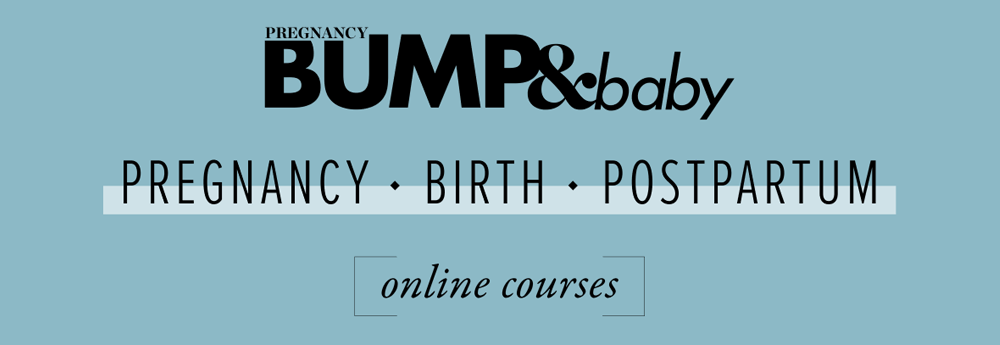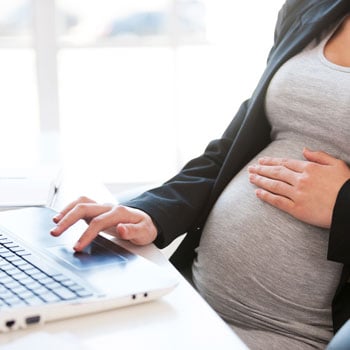
When you’re newly pregnant, having sex might be the furthest thing from your mind — particularly if you’re suffering from morning sickness and other uncomfortable symptoms.
Planning to expand your family can mean you’ll need a lot of, ahem, practice. So if you’ve been trying for a baby for some time, you and your partner will probably hit pregnancy running, sexually speaking. And if you’re well and truly in the habit of regular sex when you become pregnant, you may find there’s no need to make changes to a good thing. Or perhaps all this preparation give a couple a sense of having achieved a “job well done”, and a feeling that it’s time to put the brakes on that side of your relationship for a while. There is no formula for how you’ll both feel and react to the news of your pregnancy, and no way to predict how it will affect your sex life. Carry on as normal or experience great changes — either way, you’ll naturally have question about sex during pregnancy. Your partner will as well, so it’s important to seek out the information you need. Take a deep breath, try to quash any squeamishness or feelings of insecurity, and ask your midwife, obstetrician, or GP straight out. These professionals will be more than happy and not at all embarrassed to address your concerns or queries directly.
Quick fact
50% of first-time mums and 75% of first-time dads are nervous about “doing it” during pregnancy.
There is an extremely wide definition of “normal” when it comes to sex during pregnancy, just like there is a wide range of “normal” in sex outside of pregnancy. All couples are different and will move through the pregnant time in their relationship with different rhythms. Pregnancy is incredibly unique to every woman, and can even be quite different for an individual woman between each pregnancy. Male partners experience pregnancy in many different ways too, albeit on a more psychological level than a physical one. Pregnancy is driven by hormones, and these changes affect women in different ways. Some women experience a dramatic increase in libido, others the same to a lesser extent — and still others will find the opposite to be true. (Hands up if you’re thinking the couch and a tub of ice cream sounds more appealing than a session between the sheets right about now.)
No sex drive?
If you are the pregnant woman in the relationship and you find your sex drive has plummeted right to your swollen ankles, take heart that you’re in good company. Many women feel this way. But it is important to communicate with and encourage sensitivity in your partner, who may need help to understand the change in you. Tending to your emotional and psychological needs will be more important right now than having sex. Keeping the lines of communication open and sharing your feelings will help to keep your sense of intimacy alive. Touching, cuddling, and massage are wonderful ways to feel connected. There wouldn’t be many pregnant women who’d turn down the offer of a good foot rub at the end of a long day. If your partner still struggles to accept this slow-down on the physical side of your relationship, remind them pregnancy is a relatively short time. You may also need to encourage them to seek support from your professional team, or even from their peers. Getting a bit of objective input from a mate during a run or over a weeknight pint may help to get things in perspective.
High libido
So you’re one of the lucky ones whose libido goes through the roof during pregnancy? Good for you! Sex is arguably one of the most enjoyable ways to keep up your exercise quotient. Regular, moderate exercise and keeping fit helps to keep your moods on an even keel while all those hormones are raging round your body. And it helps both body and mind to be in tip-top condition to deal with the physical and psychological demands of growing a brand new human being.
Is it safe?
But, you may ask: Is it safe? Yes, it is perfectly safe to be sexually active during pregnancy, with just a few exceptions. There are some medical reasons, such as placenta praevia, risk of pre-term labour, or carrying multiples, which might exclude you. Your LMC will monitor and advise you on any of these conditions, but double-check with them if you’re unsure.
Despite common fears among women, there is no connection between sex and early pregnancy loss or miscarriage in normal pregnancy. As long as you’re up for it, and your partner is on board, you’ve got a green light. Partners can often worry that sex might hurt the baby, but this is not true. Both orgasms and the prostaglandins in semen can trigger uterine contractions. But having sex up to your due date is unlikely to bring about labour in a normal pregnancy. Remember, though, that the prostaglandins contained in semen can be beneficial to soften the cervix and get your body ready for delivery, particularly if you’re overdue. Many women find themselves turning to sex in the very last days of pregnancy to help hurry things along. This is one of those old wives’ tales that actually has a measure of truth to it. And it’s perfectly safe to try once you’ve passed your due date, unless your pregnancy is high-risk.
Sexual appetite
It’s possible your sexual appetite will wax and wane during your pregnancy. Many women experience feelings of morning sickness, vomiting, nausea, and depleted energy in the first trimester, which can certainly leave you couch-bound and lacking interest. As you enter the second trimester, you may experience a return of energy and a lessening of queasiness. This can combine with a jump in oestrogen levels to give you a surge of libido. Make the most of it if this happens to you. By the third trimester, many women start to really feel the physical effects of the extra weight they’re carrying. Pressure on your pelvis, swelling, back pain, and a shift in your centre of gravity can have you groaning and feeling off-kilter. Both this physical discomfort and a too-common psychological preoccupation with one’s size can affect a woman’s sense of sexual desire all over again. It’s also true that — for first-time mums especially — you may just simply have too much to think about to be concerned with much else, sex included, while expecting a baby.
So you may find yourselves at-it-like-rabbits at some or all stages of your pregnancy. Or it might be more a case of “pass the ice cream” in your home. Either way, something to keep in mind is that opportunities for intimacy, sex and privacy can be pretty hard to come by once your baby arrives on the scene. Welcoming a new baby to the fold is a naturally stressful time in many ways. A strong partnership heading into the journey will help to smooth the road no end. And enjoying each other’s company while you anticipate the upcoming life-changing event will enrich the experience, whether that takes place in the bedroom or not.
BUMP&baby
BUMP & baby is New Zealand’s only magazine for pregnancy and early babyhood. Our team of mums and mums-to-be understand what it’s like to be pregnant in this connected age, and that’s why BUMP & Baby online is geared toward what pregnant women and new mums really want to know.
Other articles of interest
Maternity leave: 8 essential questions answered
Parental leave entitlements can be a bit confusing. Here’s a quick guide to what you need to know.







